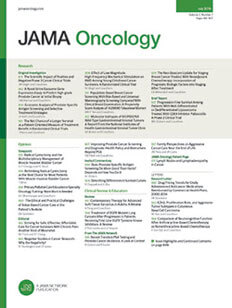Study Overview
Published in JAMA Oncology, this large, prospective study enrolled 323 patients with advanced NSCLC and concluded that routine use of Guardant360 can increase the likelihood of finding targetable mutations.
"These results, combined with the patient satisfaction with the relative ease of providing blood rather than a solidtissue sample, suggest a clinical strategy of pursuing plasma NGS first, then tissue NGS if plasma NGS cannot detect relevant mutations."
with tissue genotyping for targetable alterations before first-line NSCLC therapy
Published in JAMA Oncology, this large, prospective study enrolled 323 patients with advanced NSCLC and concluded that routine use of Guardant360 can increase the likelihood of finding targetable mutations.
were unable to get complete genomic results from tissue biopsy
had targetable alterations detected by Guardant360 and tissue testing (n=82) versus tissue testing alone (n=47)
had a response or stable disease based on RECIST criteria

Clinical Implications of Plasma-Based Genotyping With the Delivery of Personalized Therapy in Metastatic Non–Small Cell Lung Cancer
Educational Booklet
You have questions. A simple blood test may have answers.
View Publication Download materialClinical cancer research
Clinical Utility of Comprehensive Cell-Free DNA Analysis to Identify Genomic Biomarkers in Patients with Newly Diagnosed Metastatic Non-Small Cell Lung Cancer
View Publication View Publication